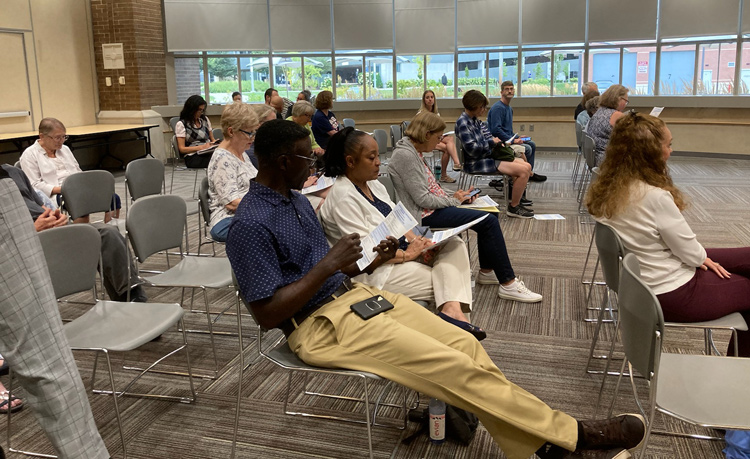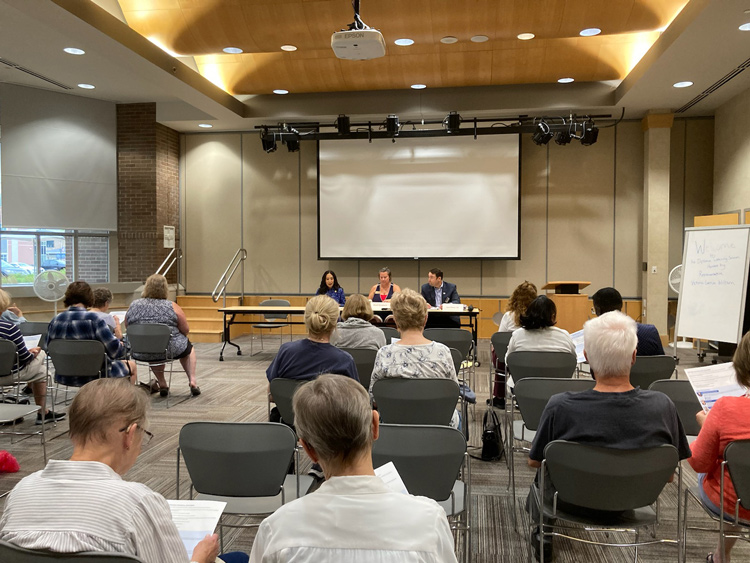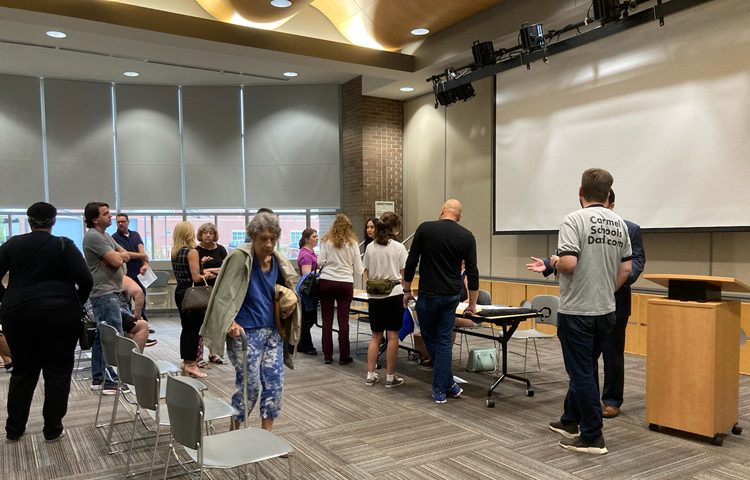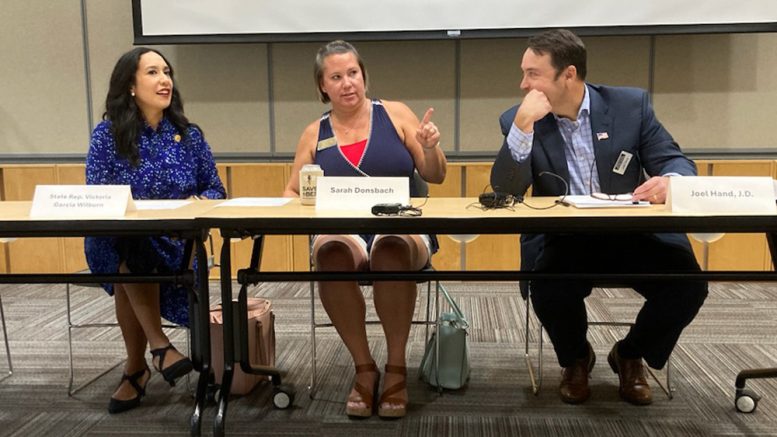Public officials hear voters’ concerns on Indiana education proposal
By ANNA MITCHELL
news@readthereporter.com
The State Board of Education proposed two new diplomas for Hoosier high school students in March 2024, and the changes are proposed to take effect December 2024.
State Representative Victoria Garcia Wilburn (D-Fishers) played host to a listening session July 29 to inform people on the new Indiana diploma proposal and to answer their questions. Hamilton Southeastern School Board member Sarah Donsbach and attorney Joel Hand also added their expertise.
The New Indiana Diploma Proposal includes the GPS (Graduates Prepared to Succeed) Diploma, the GPS Diploma Plus, and a federally required alternative diploma for students with significant learning disabilities. The information meeting focused on the GPS and GPS Plus diplomas.

Reporter photo by Anna Mitchell
According to Wilburn, the changes for the new diplomas include:
- 94 percent attendance
- Marked improved attendance
- Two seasons of a co-curricular
- 3.0+ grade-point average at the end of 10th grade
- External paid job
- External verification of competency
- Math is not required above Algebra I
- Four semesters of science instead of eight
- No health class
- No requirement to take language or fine arts electives
- U.S. History and U.S. Government are only required Social Studies classes (not including: Geography, World History, or Economics)
Wilburn is concerned that the new diplomas’ requirements will not prepare students for their futures.
“I believe that every child should have the opportunity to receive a robust education that will set them on the trajectory to be a successful lifelong learner and hopefully be in my classroom one day in Graduate School,” Wilburn said. “However, I do share some great concerns that the latest diploma proposal focused on ‘Reimagining High School’ will leave our students without the tools to adapt to the ever-changing economy. The members of the State Board of Education have expressed that the driver behind the proposal is to allow more students to enter the workforce. Yet in the same breath, the same board has noted that only just over half of Indiana High School students go on to higher education. So my opinion is that education should be about expanding opportunities for our students and making them well-rounded citizens, not about catering to one certain industry to fill a one-time need.”

Reporter photo by Anna Mitchell
Others shared Wilburn’s concerns and questioned whether their children would be prepared for their futures. Their questions included:
- How are colleges involved in the conversation?
- How will this impact rural and underprivileged communities?
- What data are they basing these changes on?
- Will the current diplomas be offered alongside the GPS and the GPS Plus?
- How will a child prepare for college if they change their mind about what courses they want to take or what they want to do in the future?
- How will not taking the SATs impact college decisions?
- Who verifies the workforce competencies?
- How will this affect kids in sports, IV classes, ACP classes, or AP classes?
Wilburn, Donsbach, and Hand presented the information they had and were open about when they did not know the answer.
Donsbach noted that all the classes offered previously will still be available. Students will be able to take the electives and subjects that interest them or align with their intended career path.
“None of these requirements prohibit students from taking these additional courses,” Donsbach said. “None of these courses are going to go away just because they’re not required. We as a school district do that based on demand, so there are still going to be kids who are in college, who are college-bound, and who are on a college track. They know that that’s what they want to do, and they will continue to take these courses that will continue to be available. But there might be someone who maybe wants to go into cosmetology or into welding, who might not necessarily need to take a whole lot of extra biology classes or earth science classes because they want to be able to take those welding classes earlier and then actually go out and get on the job experience, which will help them get a job quicker.”
Donsbach also said students will have more flexible schedules, enabling them to take more relevant classes. Before, they may not have had the opportunity to take those classes because of the current graduation requirements.
On July 30, Wilburn attended an Indiana Department of Education and State Board of Education (SBOE) public hearing on the draft diploma proposal, which you can read about at this link. She is still communicating with the board and encourages people to reach out to SBOE at SBOE_Comment@sboe.in.gov or to her office at H32@iga.in.gov with their questions and concerns.

Reporter photo by Anna Mitchell

